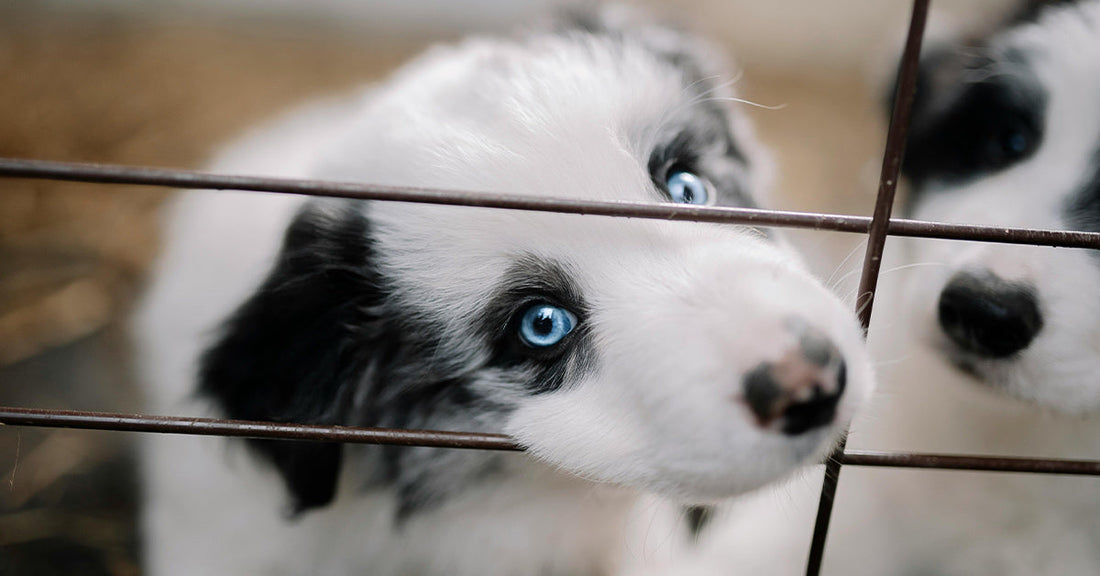Georgia Shuts Down Roadside Pet Sales to Fight Cruel Breeding
Matthew Russell
A sweeping new law in Georgia will soon make it illegal to sell dogs, cats, and rabbits in public spaces, including parking lots, sidewalks, and flea markets. Supporters say the ban addresses the unchecked overbreeding behind many roadside sales, while also giving shelter animals a better chance at adoption.
The measure, House Bill 331, signed into law by Governor Brian Kemp, is part of a growing effort across Georgia to address the state’s overpopulation of homeless pets. As 13WMAZ reports, it goes into effect July 1 and includes penalties up to $500 per offense. Notably, the law treats each animal sold as a separate violation, multiplying the potential consequences for those who ignore the new rules.

Georgia banned pet sales in public and commercial spaces.
Backyard Breeders and Unregulated Markets Targeted
Animal advocates say this move is long overdue. By eliminating sales from trucks and tables in parking lots, Georgia is attempting to cut off a common pipeline for puppy mills and backyard breeders. These sellers often avoid scrutiny and sell animals with no health records or vaccinations.
The concern isn't just about ethics. Many of these animals face serious health problems, leaving unsuspecting owners burdened with high vet bills—or worse, surrendering their pets to already overcrowded shelters. Best Friends Animal Society applauded the bill, calling it a win for both animal welfare and public safety.
“Puppy mills frequently sell on roadsides and parking lots to prevent the public from seeing the oftentimes cruel and dire conditions these pets are bred in,” said Laura Donahue, Senior Director of Advocacy for the organization.

Roadside and flea market animal sales are now illegal in the state.
Relief for Struggling Shelters
Across Georgia, shelters report being at or over capacity. Paws Humane Society in Columbus currently cares for over 300 animals—200 on-site and another 100 in foster homes. Executive director Courtney Pierce told WRDW that backyard breeding and irresponsible pet sales are a major factor in the overcrowding problem.
Local animal control officials share her concerns. In Warner Robins, supervisor Greg Langston says that eliminating these sales will “ease the pressure” on facilities like his, where dozens of dogs and cats wait for homes. Unlike many parking lot sellers, shelters vaccinate animals, treat them for parasites, and ensure basic medical care before adoption.

The law targets the sale of dogs, cats, and rabbits.
Retail Bans Spread Across the State
Georgia's crackdown follows the lead of several cities that have passed similar ordinances. As FOX 5 Atlanta reports, Canton was the first to outlaw retail pet sales in 2017. City officials hoped to cut ties with puppy mills by preventing stores from sourcing animals through those channels. The law received overwhelming support from residents who had seen photos of inhumane conditions at out-of-state breeding operations.
Atlanta followed in 2018 with its own ordinance banning pet store sales of cats and dogs. The law was described as a “preventative measure” since no local stores were actively selling pets at the time, but leaders felt it was important to act before the problem grew. The Atlanta City Council passed the measure unanimously, joining over 250 municipalities nationwide that have implemented similar laws, reports the Atlanta Journal-Constitution.

The law helps dismantle puppy mills and backyard breeding operations.
Opposition from the Pet Retail Industry
Not everyone supports the bans. Representatives from Petland, a major pet store chain, argue that these laws hurt responsible, licensed breeders while doing little to stop truly unethical operations. Some even call the measures political gestures, aimed at pleasing activists rather than solving root problems.
Elizabeth Kunzelman, Petland director of public affairs, told Atlanta Journal-Constitution that she was shocked by the law, saying it drives demand toward unregulated breeders operating online or in the shadows. But animal welfare groups counter that pet stores have long been a key sales channel for high-volume breeders with poor track records.
A Shift Toward Adoption Culture
With the law now signed, Georgia becomes the latest state to make a firm shift toward adoption as the preferred way to welcome pets into homes. While buyers can still work directly with reputable breeders or adopt through rescues and shelters, the days of purchasing puppies from a folding table in a gas station lot are coming to an end.
Lawmakers and advocates alike say that change was necessary. With shelters full and too many animals suffering needlessly, Georgia is drawing a clearer line between humane adoption and irresponsible pet sales.
Click below to make a difference.

